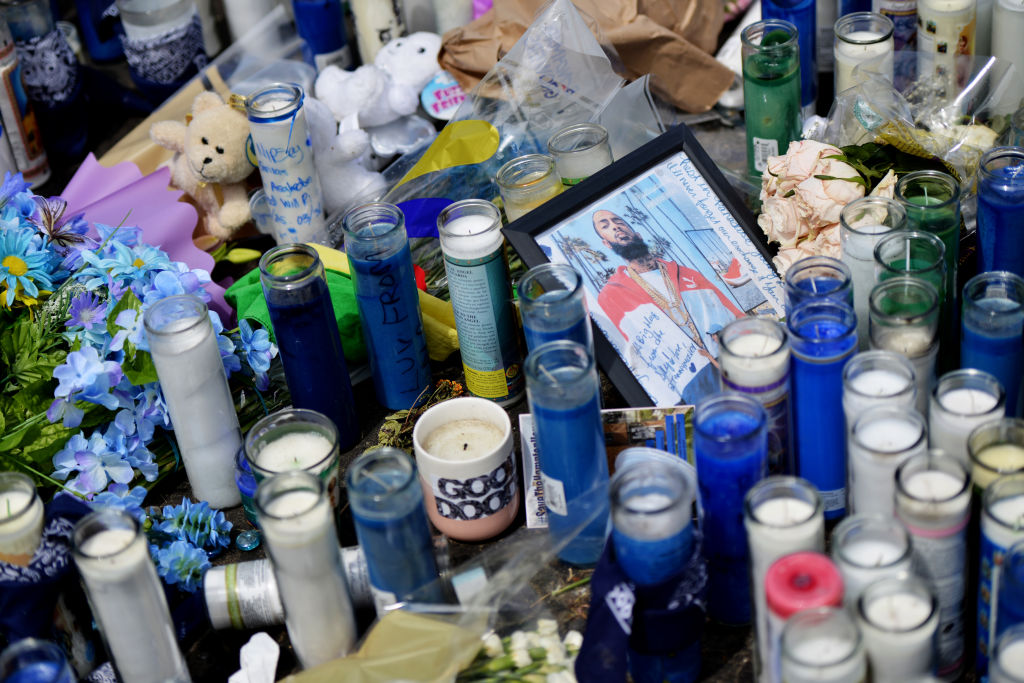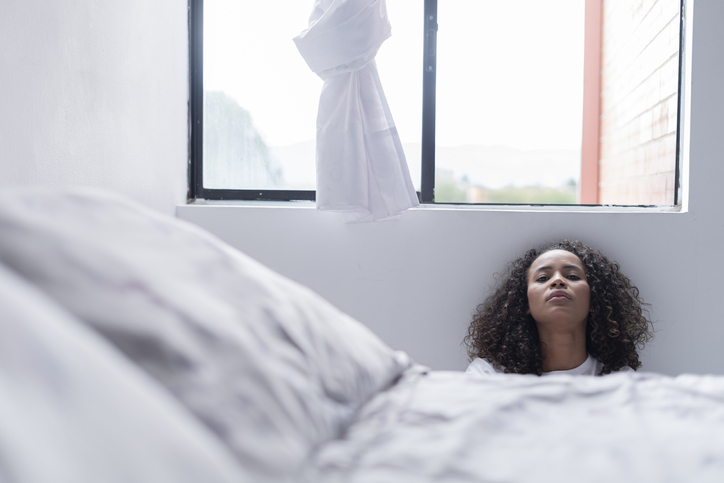
Source: Chelsea Guglielmino / Getty
In a time of monumental collective loss—over 600,000 people have died in the United States as a result of the coronavirus pandemic—we have yet to see a coordinated, nationwide response to fully acknowledge the human toll. This response during a period of what may be described as exceptional loss, runs the risk of making grief an exceptional phenomenon rather than the lived reality of being human. Yet, our online connectivity via social media can often mean that grief is expected to move at the speed of a refresh of our social media timelines. Not only are we not all living the same pandemic experience, we are not all having the same experience with grief. Olympian Raven Saunders recently announced she would be taking a social media break to care for herself and her family after her mother’s death just days after she won a silver medal in the 2020 Tokyo Olympic Games.
In an emotional Instagram Live video, rapper Fetty Wap publicly acknowledged the death of his daughter Lauren and invited fans to post butterflies in her memory. Similarly, singer Keisha Cole thanked both her and her mother’s fans and supporters on Instagram after the passing of her mother Frankie “for being here with us during these hard times, and the love that you all have for us…” Actor Michael Jai White revealed in an interview with VLAD TV that his eldest son lost his battle with coronavirus at the age of 38. Even when we are not public figures, social media can quickly turn our loss public and bring an expectation from our respective publics to discuss our grief—to neatly process in real-time before we can fully catch up with our new reality. It is not uncommon to be tagged in posts where remembrance or condolences are offered before one speaks on their own experience from people from whom we are intimately connected or relative strangers, alike. However, we do not owe people the performance of our grief especially under extractive voyeuristic conditions where care has not been established. Which is not the same thing as avoiding our grief but rather setting the terms for our own healing.

Source: Mario Arango / Getty
Social media has been a place of both harm and healing for me. As a four-year child loss survivor, I’ve been told that I am “doing grief right” as if there is a guidebook to grief that guarantees its mastery. Grief often defies human description and understanding. There is no perfect way to grieve. It can be no surprise that people in deep grief express that they want to disappear. In an era of online hypervisibility while being sometimes simultaneously disconnected from community, it can be difficult to navigate the murky waters of emotional well-being while trying to decide who has our best interests at heart. Philosophically (and publicly), we offer that “it is okay to not be okay” but how do we demonstrate that we are willing to handle the complexity of the lived reality of this mantra because to not be okay can be messy, has consequences and bring the risk of being misunderstood. Sha’Carri Richardson was disqualified from competing in the 2020 Tokyo Olympic Games for testing positive for marijuana use after learning of the death of her mother from a reporter during an interview. She said the news sent her into “a state of emotional panic” and that she couldn’t hide herself so she had to “go in front of the world and put on a face and hide my pain.” Her experience brought an onslaught of online discussions about mental health, weakness, self-care, and accountability. Some of us press on through our disorientation and pain because not only is often the most familiar but it is what is expected of us.
We must be careful not to replicate the same models of harm that are visited upon us. This can look like projecting expectations on how people should move through the experience of grief. In a grief-avoidant society, one of the most radical things we can do is hold compassionate space for each other—including online—even when it defies our individual understanding or expectations of how people should grieve. Especially for Black people when we are told we experience less pain, if any at all.
We disrupt the social order when we defy narratives of being super-human and seek care, compassion, and grace. We must resist the rush to resilience and the accompanying praise for ourselves and others that do not permit us to reckon with the conditions that created the need for resilience in the first place because being strong is no substitute for healing work. We do not have to prove our strength by how much we endure—whether online or elsewhere. It is okay to step away to protect your peace—it doesn’t make you weak but wise and may be the very thing that can help you get well.









